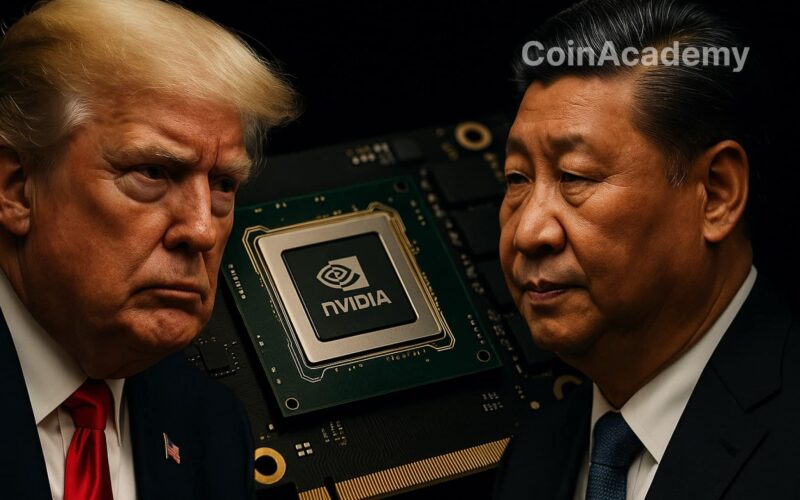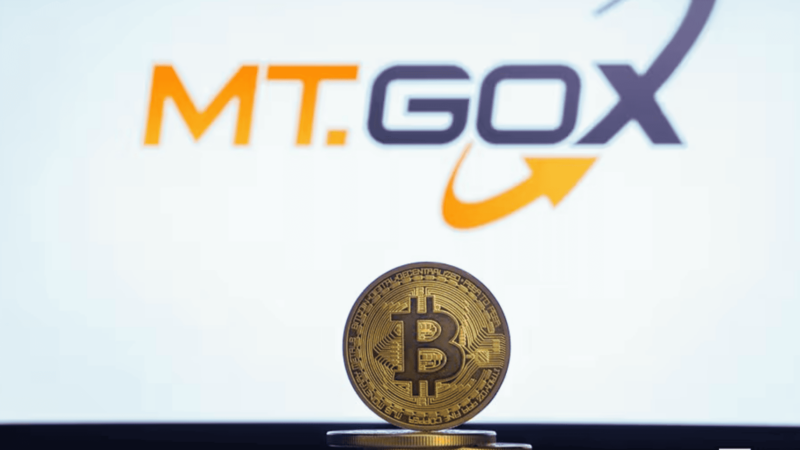Over a billion dollars’ worth of Nvidia AI chips, including the B200, have been illegally infiltrated into China since May, despite reinforced American sanctions under Trump.
Companies like Gate of the Era, associated with AI players like China Century, fuel a well-organized black market spanning from Guangdong to Shanghai.
Legal and logistical loopholes allow China to massively equip itself with strategic hardware, showcasing the failure of American controls to contain Beijing’s technological rise.
An Underground Economy of Artificial Intelligence
Despite sanctions intensified by Donald Trump, China has received over a billion dollars’ worth of Nvidia AI chips in the past three months. A parallel business as lucrative as it is risky has emerged, fueling Beijing’s technological ambitions while directly challenging American export controls.
At the core of this trafficking is the B200, a high-performance chip used by OpenAI, Meta, and Google. Officially banned for export to China, it circulates widely in Chinese data centers, driven by explosive demand and a well-organized distribution network.
Attempting to cobble together data centers from contraband products is a doomed endeavor, both technically and economically.
Nvidia
From Guangdong to Shanghai: The B200 Supply Chain
Distributors based in Guangdong, Zhejiang, or Anhui have been selling the famous B200 since May, often in ready-to-use racks, at a rate of eight chips per unit. The price? Between 3 to 3.5 million yuan (approximately $500,000) per rack, representing a 50% premium over American rates.
The company ‘Gate of the Era,’ based in Anhui and founded last February, has reportedly sold nearly $400 million worth of these equipments on its own. A striking coincidence: it was established just days before Trump’s announcement of the ban on the H20, the restricted version of the B200.
‘Gate of the Era’ is linked to ‘China Century,’ a AI supplier claiming to have labs in Silicon Valley and a logistics hub in Singapore. On its website, the company proudly displays partners like AliCloud or ByteDance, even though some have denied any collaboration after FT revelations.
A Gray Yet Well-Oiled Logistics Chain
The racks sold often include components from Supermicro, a well-known American assembler in the AI ecosystem. Posts on Douyin or Xiaohongshu even show packaging labeled with Supermicro, Dell, or Asus, despite these companies claiming ignorance of any diversions.
Sales occur on-site, akin to a fish market: quick testing, immediate payment, instant delivery. Telegram or WeChat groups facilitate connections between sellers, traders, and data center operators.
As a result, restricted chips, including the H100, H200, or even the top-of-the-line GB200, are now available ‘onshore for pick-up.’ Some distributors are already announcing the upcoming release of the B300, scheduled for late 2025.
The Flaws of Technological Geopolitics
The black market capitalizes on legal ambiguity: it is legal to sell restricted chips in China… under the condition that they have legally crossed the border, which is certainly not the case here. Violators are to be found among the exporters, often located in Southeast Asia.
Malaysia has recently tightened its controls, and other countries like Thailand could follow suit, targeted by Washington for serving as relay points to Chinese exporters. But according to industry players, it’s a lost cause: as one route closes, another opens.
Sanctions Transforming into Price Hikes?
Export controls won’t stop Nvidia’s most advanced products from entering China. It only creates inefficiency and generates huge profits for intermediaries taking risks.
Anonymous Chinese data center operator
What this case reveals is the growing inefficacy of sanctions in a world where the demand for computing power is skyrocketing. AI has become a strategic priority for states and a market worth hundreds of billions for companies.
Even though Nvidia claims not to be involved, the numbers speak for themselves: over $1 billion worth of theoretically banned products distributed in just a few weeks. It’s more than a loophole: it’s a thriving parallel market.
And while the White House wavers between blockades and compromises, China, illegally, equips itself.



